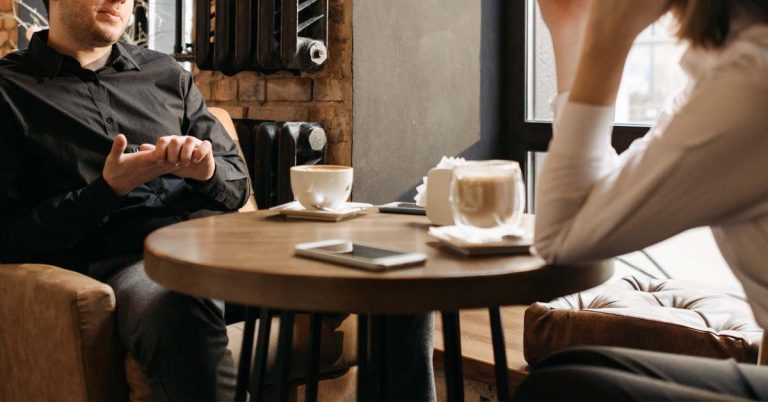You may want to rethink paying money to promote your Facebook page. Why? It appears that those “likes” you’re paying for are actually fake. Furthermore, these fake likes are coming from Facebook itself, not some shady click farms or black hat SEO operations.
- Inbox Dollars - Get paid to check your email. $5 bonus just for signing up!
- Survey Junkie - The #1 survey site that doesn't suck. Short surveys, high payouts, simply the best.
- Nielsen - Download their app and get paid $50!
And even worse, Facebook has still not addressed the issue.
What are click farms?
Before we talk about Facebook fraud and fake likes, let’s first discuss click farms. Akin to content farms, click farms employ masses of low-paid clickers who are paid solely on the number of clicks they generate. Many such click farms are often (though not always) located in third world countries. In some cases, these “click farmers” are paid to like something on Facebook. For example, a click farmer might like your donut shop Facebook page.
However, unlike a regular clicker, the click farmer has no further interest in seeing your news updates or commenting on your Facebook posts. No, the click farmer is socially uninvolved with you and your product. Aside from that like, you’d never know that this person is a fan of your page.
Because the click farmer is making X amount of money per 1000 clicks, he will also indiscriminately like other Facebook pages. As a result, the profile of this clicker will show him liking all manner of unrelated people, places or things- and a lot of them too.
Veritasium’s strange case of zombie Facebook fans
It’s reasonable to assume that, if you retain the services of a shady SEO firm, you will collect bogus Likes through click farms. However, what if you take the higher moral ground and actually pay Facebook to promote your page?
Facebook states that, for a discrete fee, it will actively promote your page, increasing its likelihood of reaching a wider audience and accumulating likes. For example, if I pay Facebook $20, I can get up to 70 new likes per day on my Evansville Area Inventors & Entrepreneurs Club page.

Back in 2012, Derek Muller, the guy who operates Veritasium, decided to buy some Facebook advertising. Almost immediately, he saw his Facebook like number jump from a mere two thousand to over seventy thousand. However, what he also noticed was that engagement levels on his Facebook page were no better than before. In some cases, engagement levels were actually worse.
How could this be?
When Derek analyzed his new likes, he noticed two disturbing trends: first, the majority of his new fans originated from countries like India, Bangladesh, Nepal, the Philippines, Pakistan, Indonesia and Sri Lanka, and second, almost 0% of these thousands of new fans engaged with any of his posts or other content.
More fans = less engagement?!?
Having those fake likes was actually worse than having a few real likes. When Derek had previously published a post on Facebook, his fans were likely to engage with that post. This high level of engagement enabled the post to later reach a wider circle of his Facebook fans.
However, once Derek’s posts started going out to his fake fans, those fans did not interact with the posts and Facebook used that non-interaction as an indication that the posts were not interesting and should not be sent to a wider fan base. It’s as if the fake fans just absorbed the posts and made them die. This is how having those extra fans actually made Veritasium’s engagement levels worse.
Derek tried deleting his new likes but there was (and still is) no systematic way to perform this action. As a result, Veritasium’s fan engagement levels were actually harmed by Derek’s paying for Facebook advertising.
How bad is the problem?
Veritasium is not the only case study of fake Facebook likes. After a few drug and biotech companies got burned by fake Likes, the bioscience consulting company Comprendia advised them to steer clear of Facebook advertising. And then there’s the State Department, which last year spent $630,000 to acquire Facebook likes- and saw only a 2% engagement level from its “fans.”
But what if an advertiser simply blocked her page from being promoted in click farm-associated countries like India or Pakistan? Because advertisers can select the countries in which their pages are promoted, sticking with countries like the U.S., Australia, the U.K. and Canada should alleviate the issue of click farm likes- right?
Unfortunately, as an anonymous source named “Bob” found out, limiting Likes to certain countries does not completely solve the problem. Click farmers will sporadically like Facebook pages that they are not even being paid to like. They do this to avoid spam/bot detection by Facebook. Obviously, if a click farmer is generating likes on just a select few advertiser pages, it’s easier to get caught. But if the click farmer is going everywhere and liking a lot of different advertiser pages, the likes seem more random.
What is Facebook doing about it?
In a nutshell, not much. While Facebook claims that it takes aggressive action against fraudulent Facebook accounts and fake likes, the most obvious action- enabling Facebook users to delete fake likes in bulk- hasn’t been considered.
You’d think that Facebook would get on the stick about removing bogus likes or just trying to eliminate the problem from occurring in the first place. However, consider what a frustrated advertiser who is suddenly inundated with 10,000 new likes yet no increased engagement might do. Yep, he might decide to pay Facebook, yet again, to promote his posts to his newly expanded audience. Such promotion is termed boosting, as shown here on my own Facebook page for my I&E Club:
So now, not only is Facebook making money by promoting a page (i.e., accumulating fake likes), it is also making money by boosting posts that the fake fans have no interest in seeing and engaging with.
In other words, fake likes are a boon to Facebook, and the company actually benefits twice from this “unresolved problem.”
In summary…don’t buy Facebook advertising
If you’ve been considering buying Facebook advertising, don’t do it. However, if you’ve already bought Facebook advertising, please let us know in the comments below regarding how your new likes and engagement levels have turned out.
No joke. Here are the fastest ways to make easy money online. Click here to see how.






I spent $50 to geographically target Massachusetts, USA, only, and got a pile of obviously fake likes from places all over the world. Facebook scams advertisers.
I tried to recently promote my new Facebook app page
http://www.facebook.com/ZombieWallDefense
I paid for Facebook Ads.
I got close to 2300 likes in a day and a half, but what a waste! Barely 1% of them translated into actual downloads or any real users. Not only that but 99% of them were from Pakistan/India or Iraq. What a waste of money!
There is no point in getting a million likes if they are from empty, fake, foreign accounts or from people who have absolutely no interest in you or your product.
I boosted my post. Got a ton of likes, hardly any link clicks. What a waste of time. Blatant click farmers liking my post (and others) to get round the fraud detection filters. DO NOT WASTE YOUR MONEY ON FACEBOOK ADS!!
I tried using FaceBook’s boost, all be it on a small scale, but all I got were VERY few likes by people (and I admit it was a small scale boost, and am not bitter about the few likes I did receive) who had no reason to like the post, and were FB accounts that had nothing there (a picture, and were less then a month old with no other history). I think FB does use (and pays?) these accounts to like their paid boost/ads to bolster a compelling reason to continue using their services.
Not sure that I agree with the idea that it’s bad to buy Facebook advertising.
There were some pretty glaring errors with Veritasium’s theory, namely the fact that you can just not promote your page to the “suspect” countries. You can also target Facebook ads more accurately than any other platform, and you can build custom audiences from people who have visited your site before, and only show them your ads.
While there are undoubtedly some fraudulent clicks going on within Facebook by farms trying to cover their tracks, there are also undoubtedly the same issues within Google and Bing.
There are also many people who make a lot of money using FB ads. All you have to do is figure out how to get around the issues that you’ve highlighted.
I think back in 2012 you could argue that Facebook ads weren’t ideal and could cost a lot, but I recently got 250 clicks to my website from unique users, for a whopping price of $15 USD. These were targeting specific types of people, and only in the US.
Hi Dom!
I’d be interested in hearing what the errors were with Veritasium’s theory- Derek stated that, at one point, he did exclude questionable countries from being targeted by his ads, yet he still got fake likes. Now, if you can just target those folks who have already visited your page, that would make for some decent filtering. Kind of like what you can do with Google’s re-targeting ads. But advertising to only your site’s visitors makes for really slow fan/engagement growth.